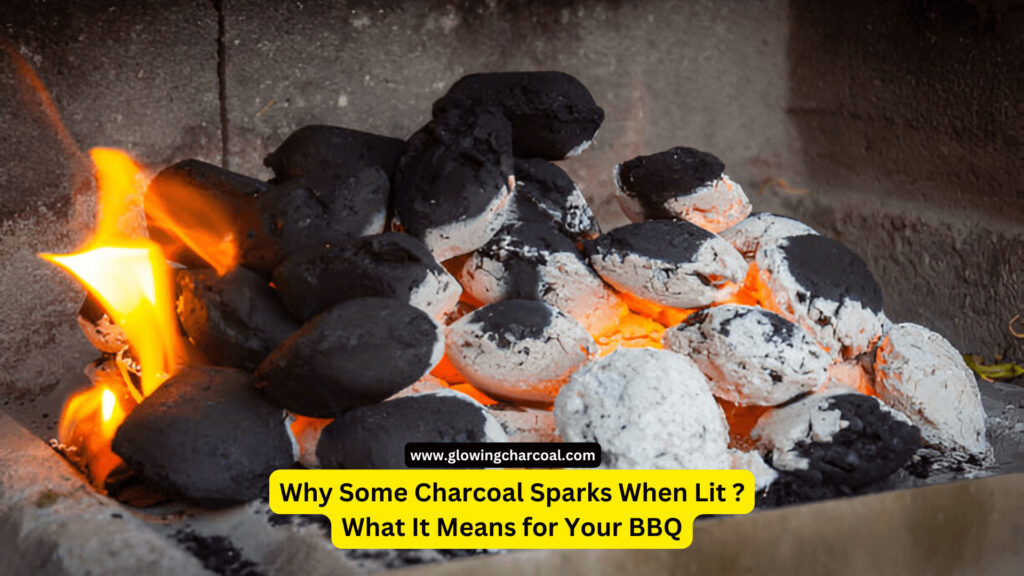Why Some Charcoal Sparks When Lit – What It Means for Your BBQ

Have you ever lit your charcoal for a BBQ and noticed sparks flying everywhere? While some minor sparking is normal, excessive sparks can be dangerous and may indicate problems with the charcoal’s quality. Understanding why charcoal sparks and how to choose the right briquettes can make your grilling experience safer and more efficient. Let’s break down the causes and how to avoid unnecessary flare-ups.
Why Does Charcoal Spark?
1. High Moisture Content
One of the main reasons charcoal sparks is excess moisture trapped inside the briquettes. When heated, this moisture turns into steam, creating pressure that causes small explosions, leading to sparks.
🔹 How to Avoid It: Use properly dried charcoal with a moisture level between 4-6% and store it in a dry place to prevent it from absorbing humidity.
2. Impurities in the Charcoal
Low-quality charcoal often contains wood dust, bark, or other impurities, which can cause unpredictable burning patterns, leading to sparks. Some manufacturers even mix in fillers or chemicals that can react aggressively when ignited.
🔹 How to Avoid It: Always choose high-purity charcoal briquettes made from 100% natural coconut shellswithout additives.
3. Inconsistent Density and Air Pockets
Some poorly manufactured charcoal has air pockets or uneven density, causing it to break apart suddenly while burning. This can create unexpected bursts of sparks, which can be dangerous if you’re grilling near flammable materials.
🔹 How to Avoid It: Look for high-pressure compressed briquettes that maintain a consistent shape and density.
4. Presence of Volatile Compounds
Some cheap charcoals contain leftover volatile organic compounds (VOCs) from the production process. These compounds can ignite suddenly, causing sparks and even small flare-ups.
🔹 How to Avoid It: Choose fully carbonized charcoal that has gone through a complete manufacturing process to remove excess volatile substances.
5. Improper Lighting Methods
Using lighter fluids or chemical starters can increase sparking, especially if the accelerant is absorbed unevenly by the charcoal. These chemicals can also produce unwanted fumes that affect the taste of your BBQ.
🔹 How to Avoid It: Use a chimney starter or natural firelighters instead of chemical accelerants for a safer and cleaner ignition.
Why Does It Matter for BBQ?
🔥 Safety Concerns: Excessive sparks can cause burns, ignite nearby objects, or lead to unexpected flare-ups. 🍖 Uneven Cooking: If your charcoal is sparking too much, it may not be burning consistently, which can lead to uneven heat distribution. 👃 Affecting Flavor: Impure charcoal that sparks excessively may contain unwanted chemicals that could alter the taste of your food.
How to Choose Spark-Free Charcoal for BBQ
✔ Opt for High-Quality Coconut Charcoal – Coconut charcoal briquettes burn more evenly, produce minimal sparks, and offer a longer burn time compared to regular lump charcoal. ✔ Check for Certifications – If you’re serious about quality, look for charcoal that meets EU or international safety standards. ✔ Proper Storage – Store charcoal in a dry place, away from humidity, to prevent moisture buildup that can lead to sparking. ✔ Test Before Grilling – If you’re unsure, light a small amount of charcoal first to observe its burning behavior before loading your grill.
Conclusion
Sparking charcoal isn’t just an inconvenience—it can be a safety hazard and a sign of low quality. By choosing high-quality, natural coconut charcoal and storing it properly, you can ensure a safer, more enjoyable BBQ experience. If you’re looking for premium, spark-free BBQ charcoal, contact us today for the best products on the market!
